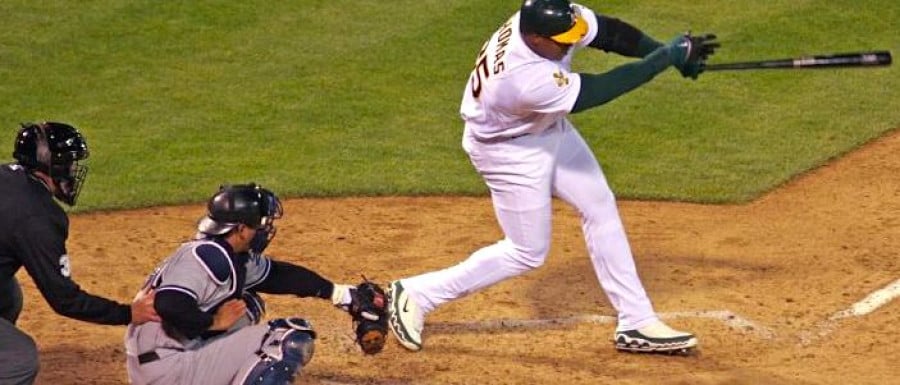Baseball’s anti-trust exemption: Is it time for a change?

Since 1922, Major League Baseball (MLB) has been exempt from antitrust law. While other professional sport leagues have a few antitrust exemptions, none of them are exempt to the degree that professional baseball is. This article will describe antitrust law, discuss the history of MLB’S unique exemption, examine the implications of this exemption, and conclude by questioning the future of the exemption.
U.S. ANTITRUST LAW
There are three main federal U.S. antitrust laws1: the Sherman Antitrust Act of 1890, the Federal Trade Commission Act of 1914) and the Clayton Antitrust Act of 1914. Together, they legislate the primary purpose of antitrust laws – to prevent monopolization and foster a competitive, efficient marketplace.2
The Sherman Act was the first antitrust law passed (1890) and remains the most prominent of the three. Section 1 of the Act outlaws: “every contract, combination in the form of trust or otherwise, or conspiracy, in restraint of trade or commerce among the several States, or with foreign nations”.4
The Act also prevents persons from forming (or attempting to form) a monopoly.5 Section 2 of the Act states that no person “shall monopolize, or attempt to monopolize, or combine or conspire with any other person or persons, to monopolize any part of the trade or commerce among the several States, or with foreign nations”.6
In 1914, the Federal Trade Commission Act was passed, creating the Federal Trade Commission (the “Commission”).7 The Commission, which consists of five members serving seven-year terms, is responsible for enforcing antitrust laws.8 The Commission is “empowered and directed to prevent persons [with certain exceptions, such as banks] from using unfair methods of competition in or affecting commerce and unfair or deceptive acts or practices in or affecting commerce.”9
Later in 1914, the Clayton Act was passed to supplement and strengthen the Sherman Act.10 Among other things, the Clayton Act addressed price discrimination11, sales with agreements to not buy from competitors,12 mergers and acquisitions, 13 and interlocking directories. 14
It is important to note that these antitrust laws applied to interstate commerce – trade and business between states, not within states. These laws restrain trade among states.
This distinction gave way to MLB’s unique antitrust exemption.15
MAJOR LEAGE BASEBALL’S EXEMPTION
Currently, there are two leagues that fall under the umbrella of the MLB organization - the American League and the National League which following the 1999 season the leagues merged with Major League Baseball, and ceased to exist as business entities. In the early 20th century, however, there were three leagues for a short period of time. In addition to the aforementioned two, there was the Federal League. The Federal League was founded in 1913 to compete with the more-established American and National Leagues.
In 1915, the Federal League sued MLB, claiming it was violating the Sherman Act by monopolizing the market of baseball players.16 The Federal League claimed that MLB was interfering with its attempt to bring baseball players into the league. The parties settled, with Major League Baseball buying out the Federal League. The new league was dismantled and its owners were compensated.
The owners of the Federal League’s Baltimore Terrapins, however, were offered a miniscule amount of the settlement money. The team refused to join the settlement. It continued to claim that MLB was violating antitrust laws and filed a lawsuit against the league.
In Federal Baseball Club of Baltimore v. National League (1922), the Supreme Court ruled that antitrust laws did not apply to MLB.17 In a unanimous decision, the court decided baseball was not interstate commerce. It was a state affair. The business of baseball took place within states, not between states. While teams had to travel between states to play each other, this was considered incidental and not a major part of business.
The court wrote: “The business is giving exhibitions of baseball, which are purely state affairs. It is true that, in order to attain for these exhibitions the great popularity that they have achieved, competitions must be arranged between clubs from different cities and states. But the fact that, in order to give the exhibitions, the Leagues must induce free persons to cross state lines and must arrange and pay for their doing so is not enough to change the character of the business.”18
To continue reading or watching login or register here
Already a member? Sign in
Get access to all of the expert analysis and commentary at LawInSport including articles, webinars, conference videos and podcast transcripts. Find out more here.
- Tags: Baseball | Clayton Antitrust Act | Competition Law | Contract Law | Corporate Law | Curt Flood Act | Federal Trade Commission Act | Major League Baseball (MLB) | Sherman Antitrust Act | United States of America (USA)
Related Articles
- 2014 technical regulations for F1® racing have affected the competitive balance between factory and customer teams
- Why did Coventry City FC’s State aid claim fail?
- MLB seeks pre-trial appeal & plaintiffs seek class certification in anti-trust broadcasting litigation
- NCAA using O’Bannon decision to seek dismissal of other suits




